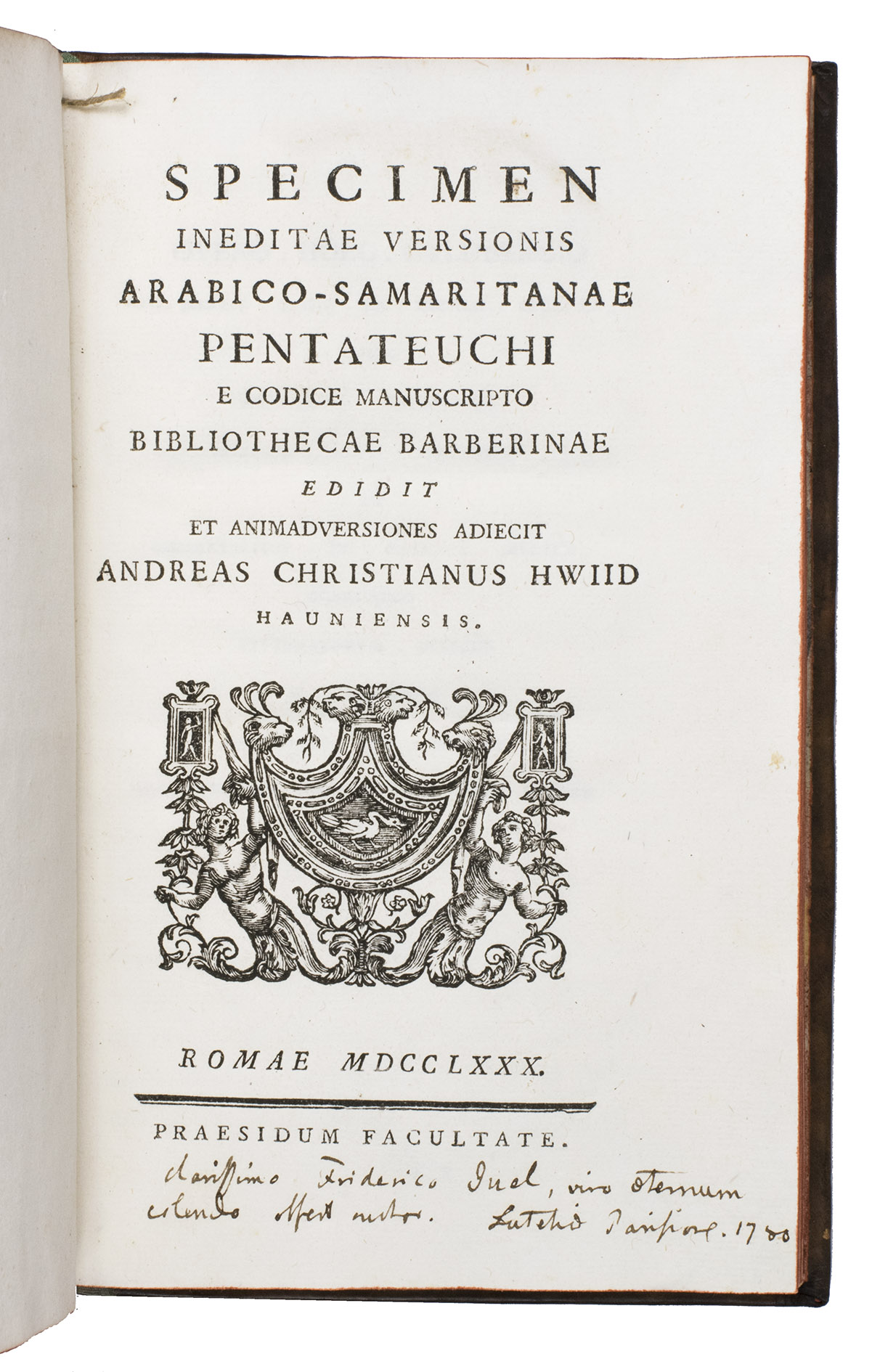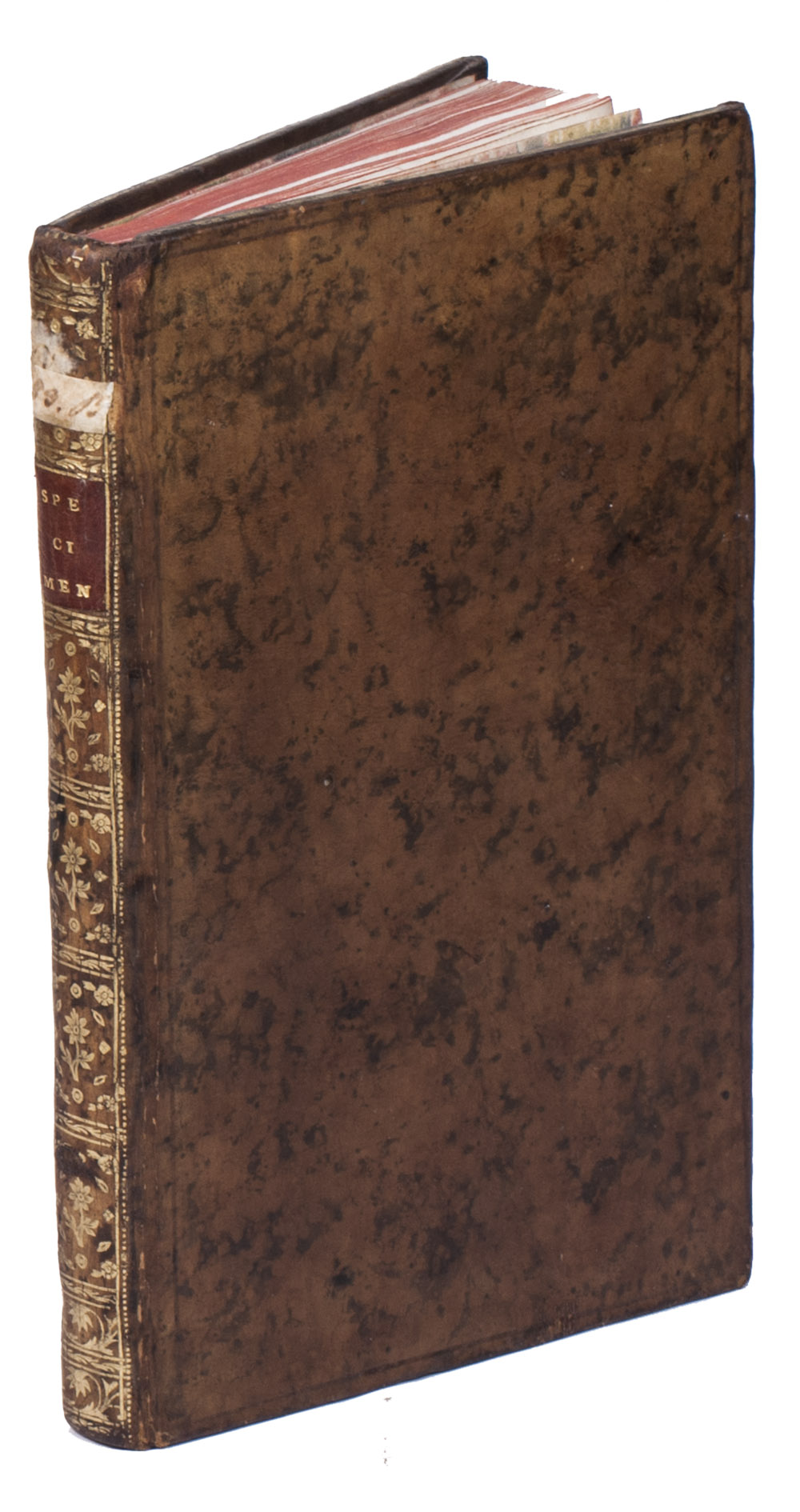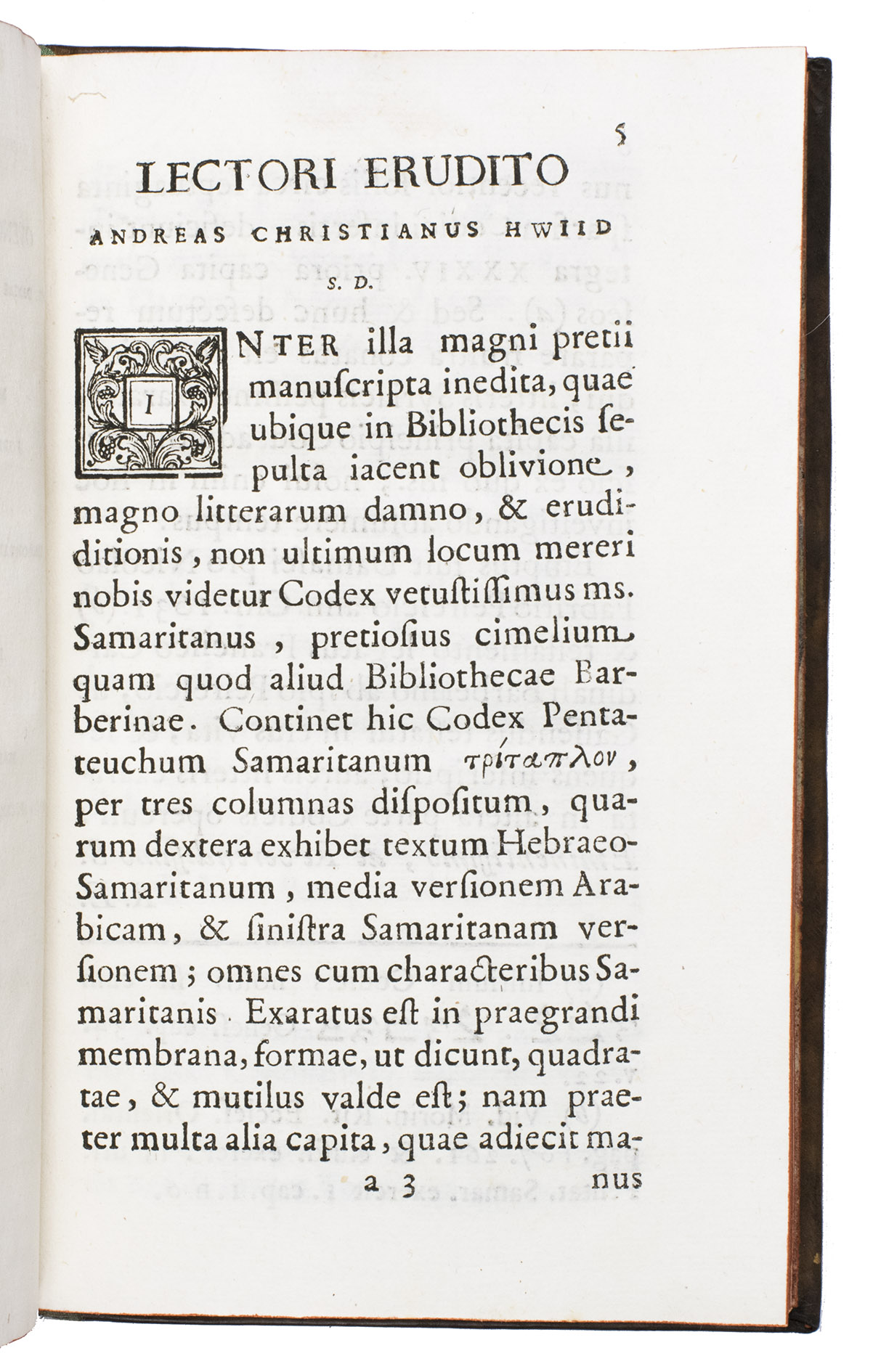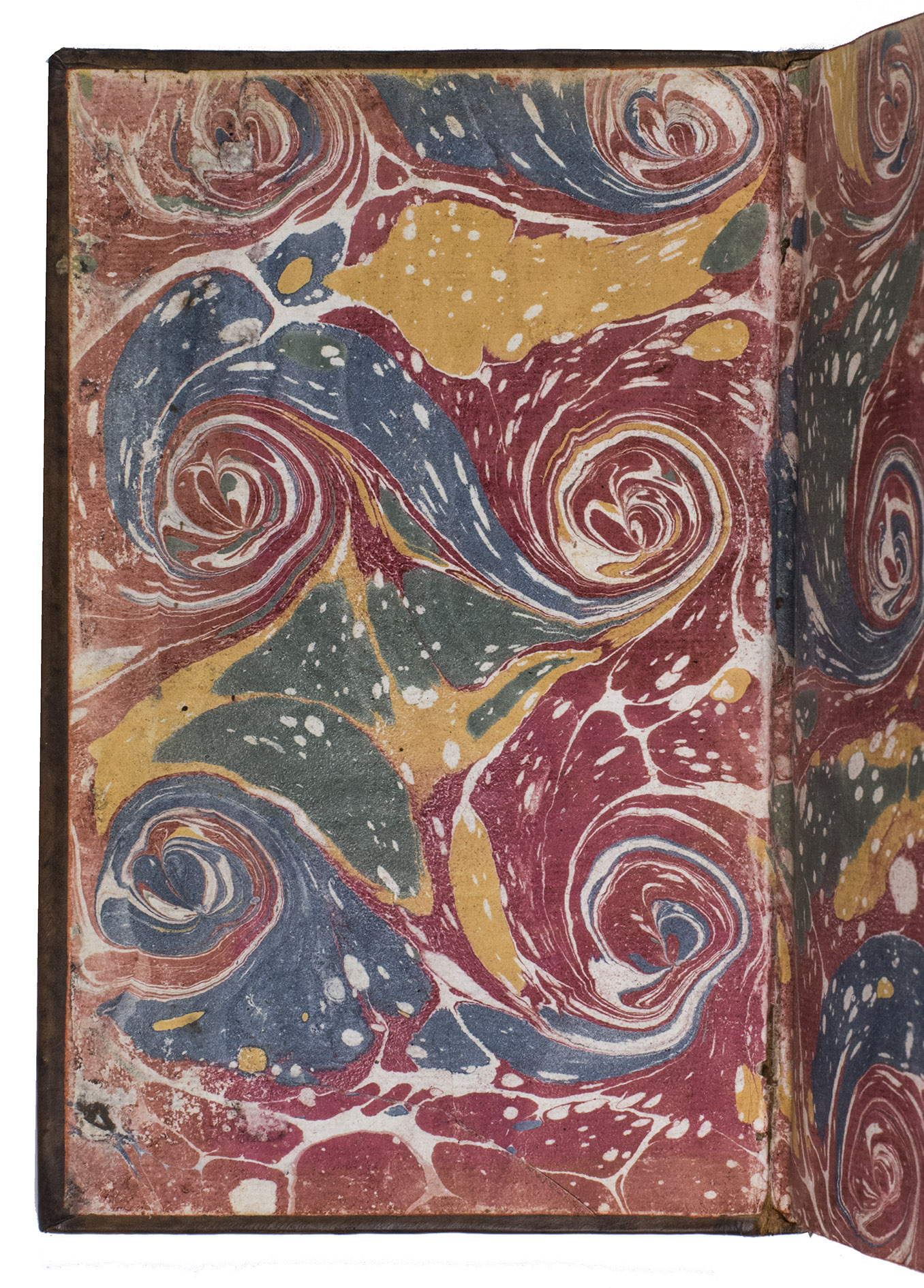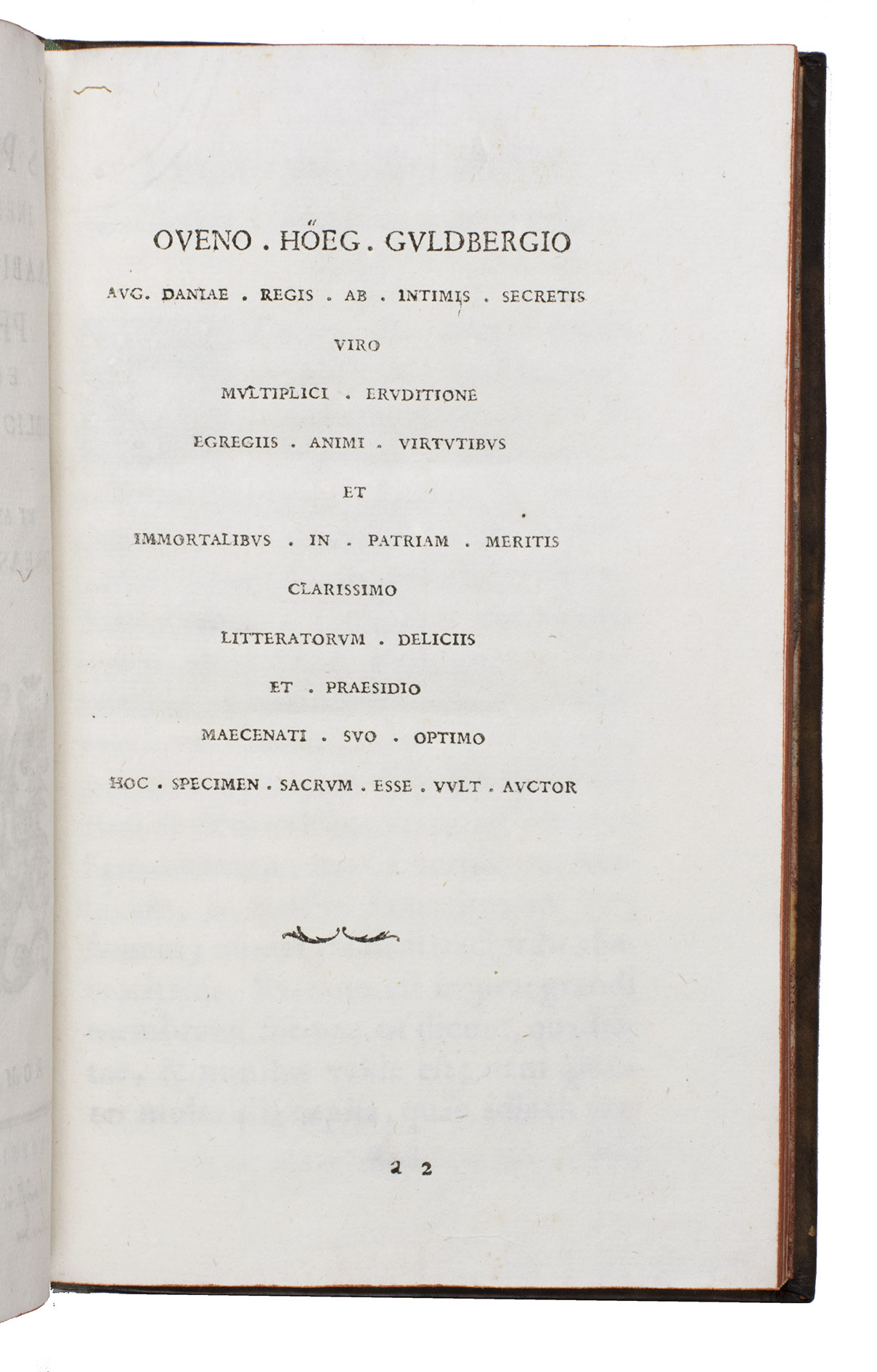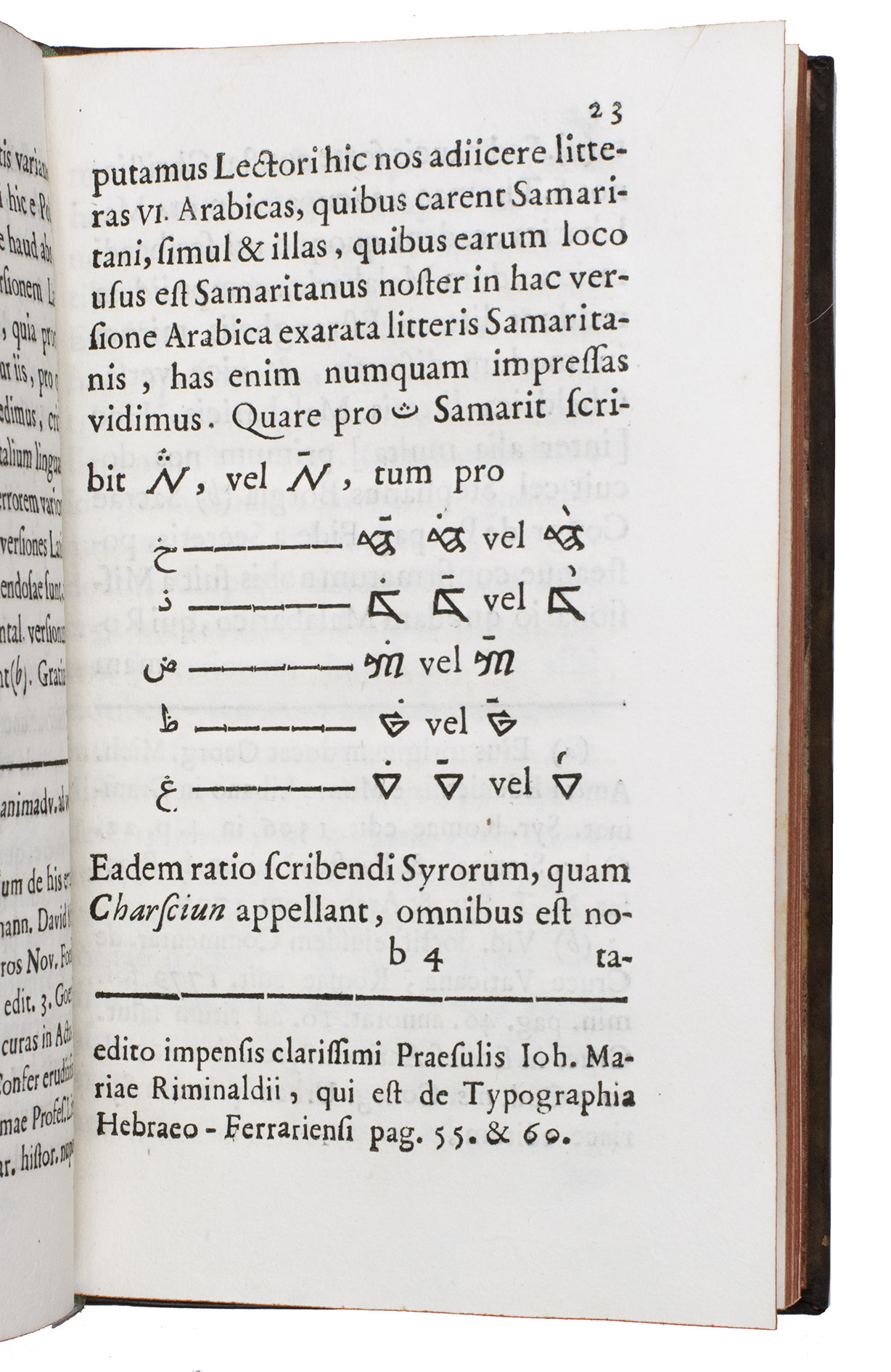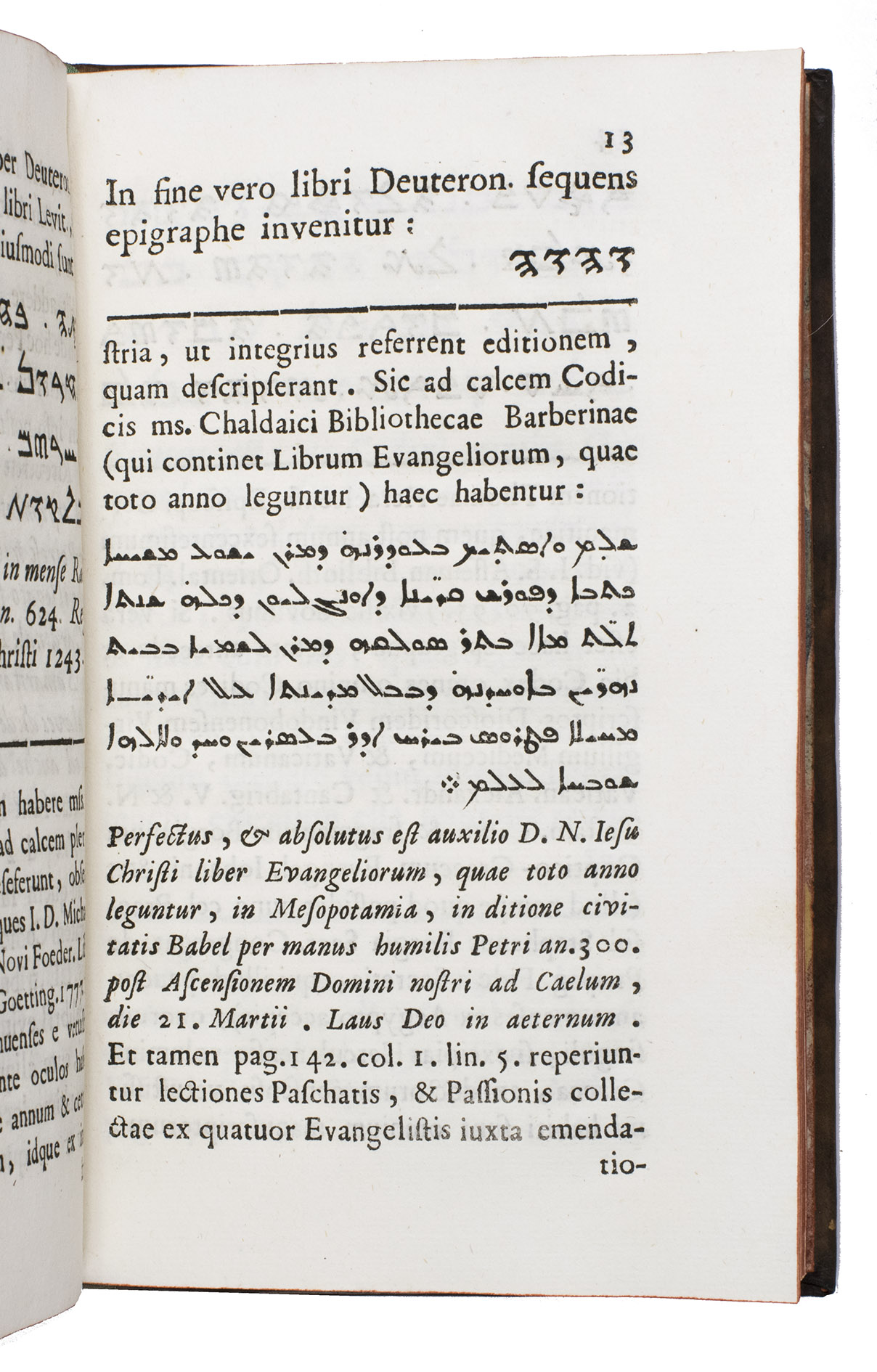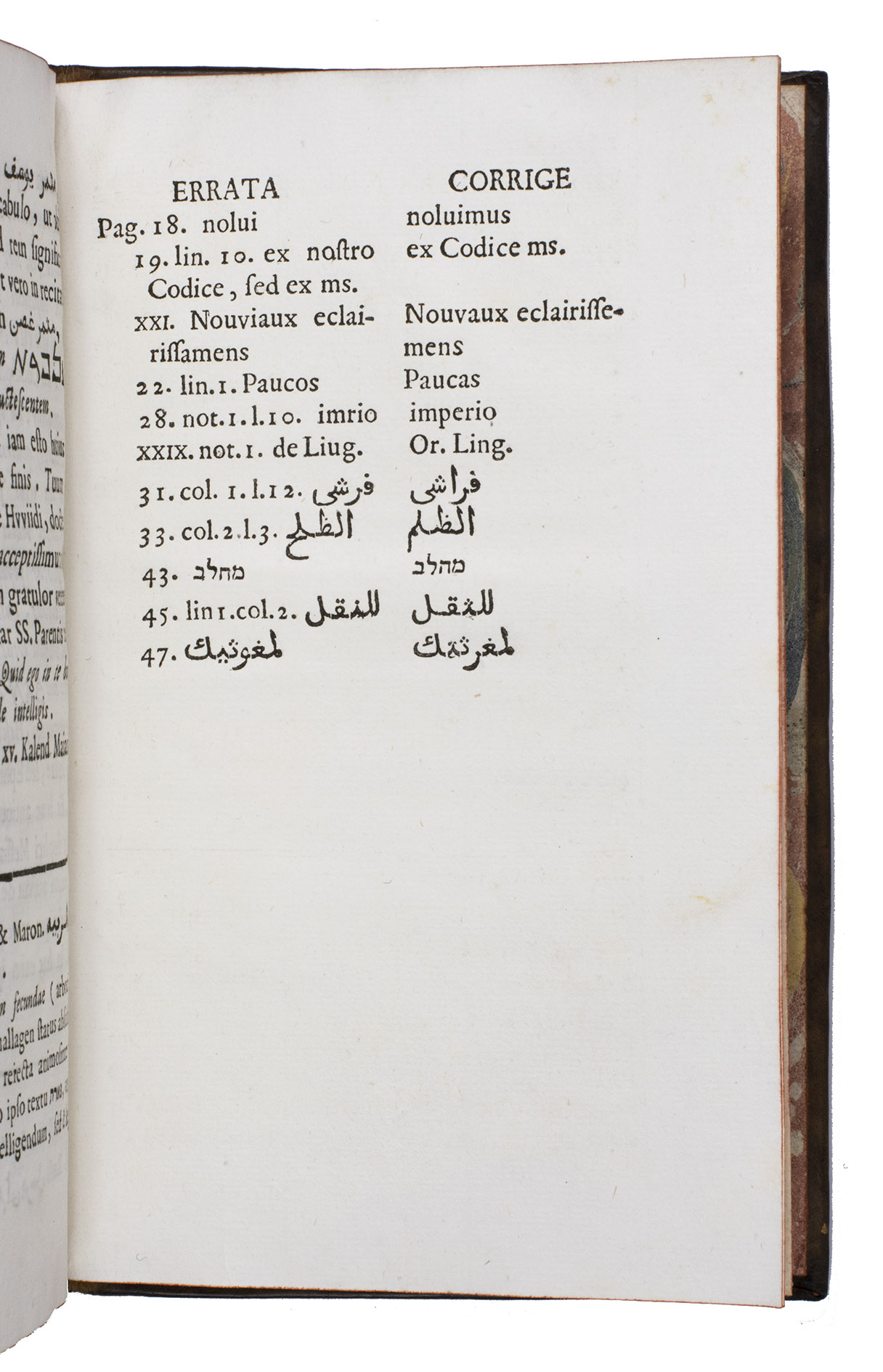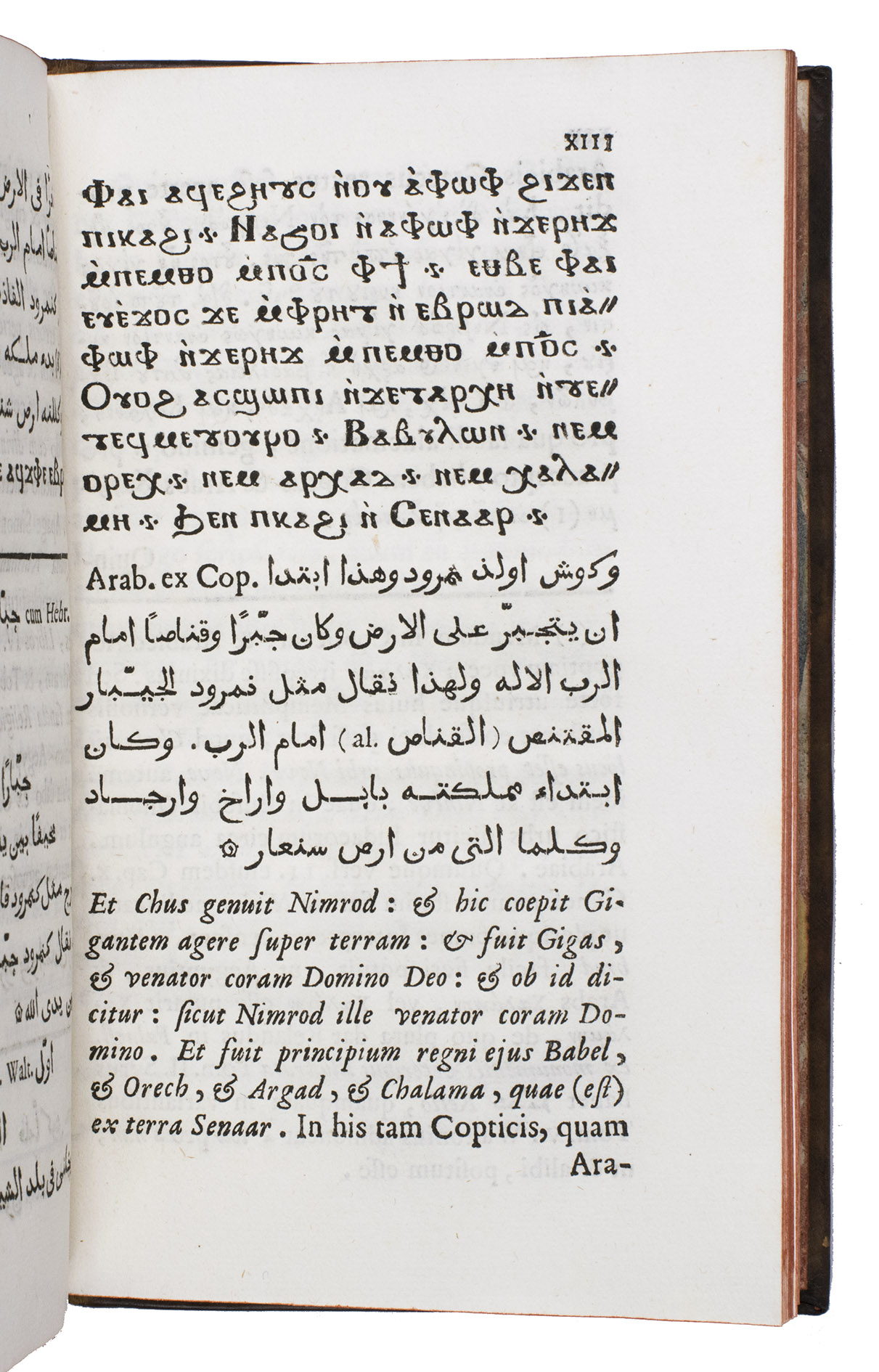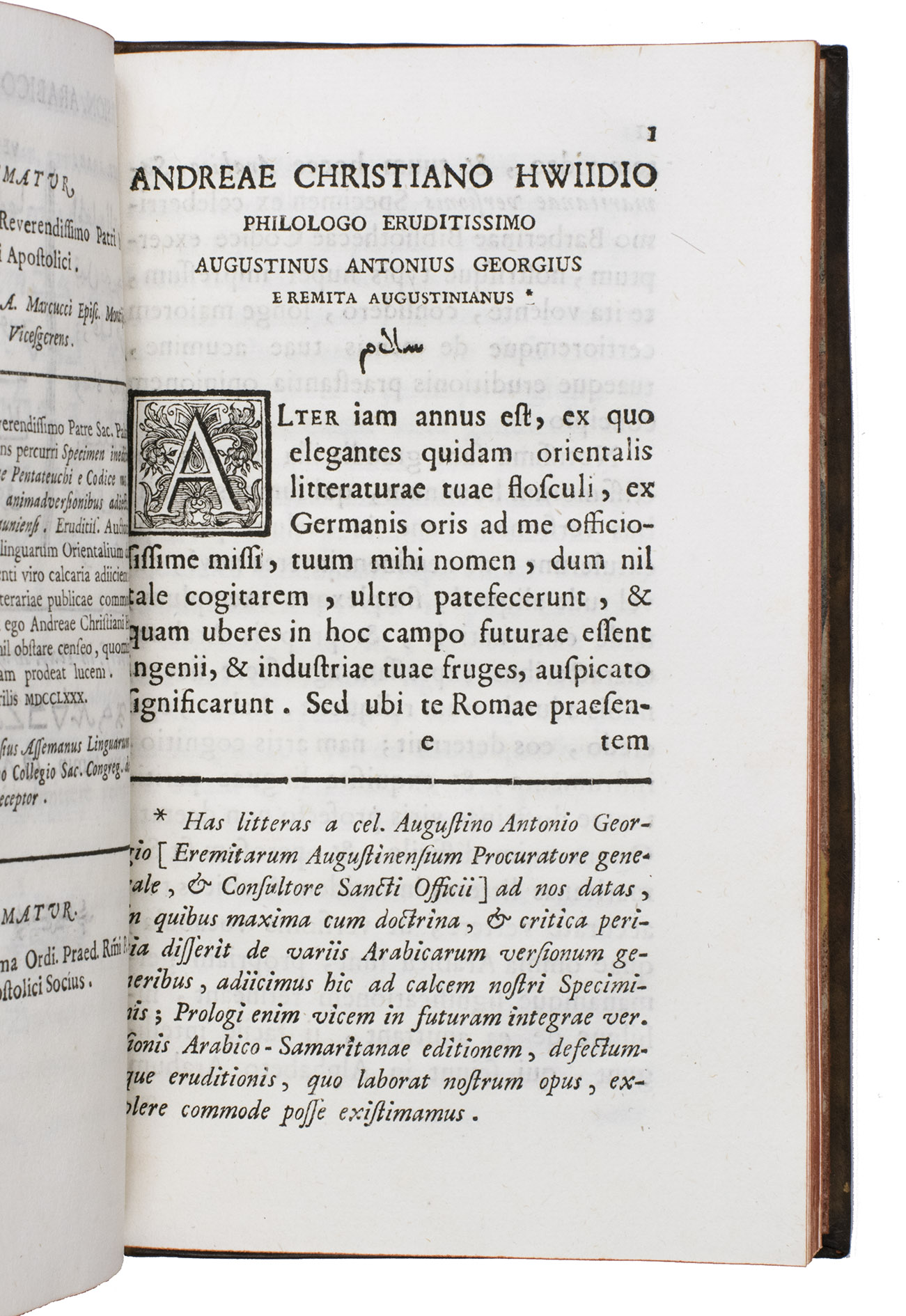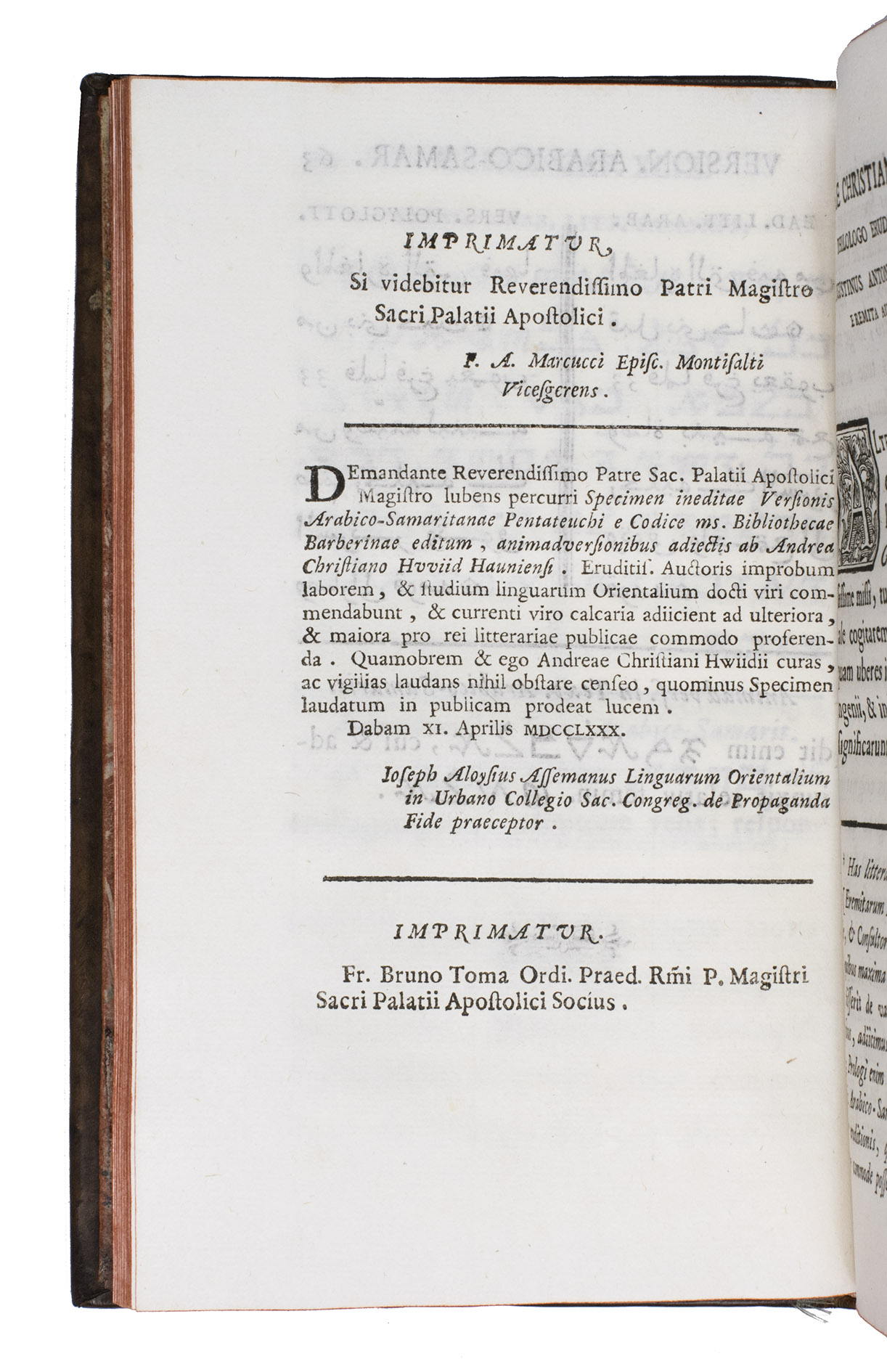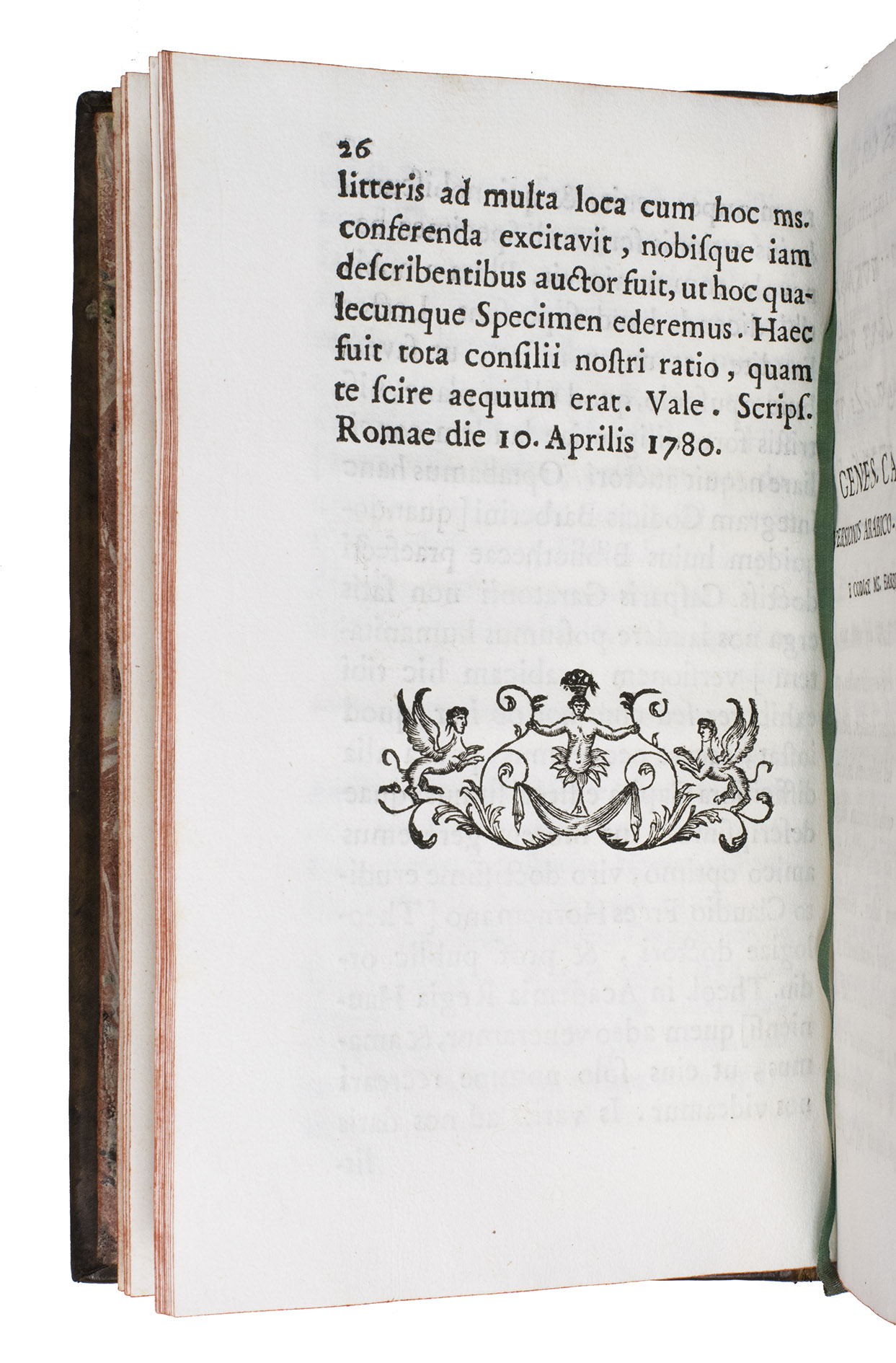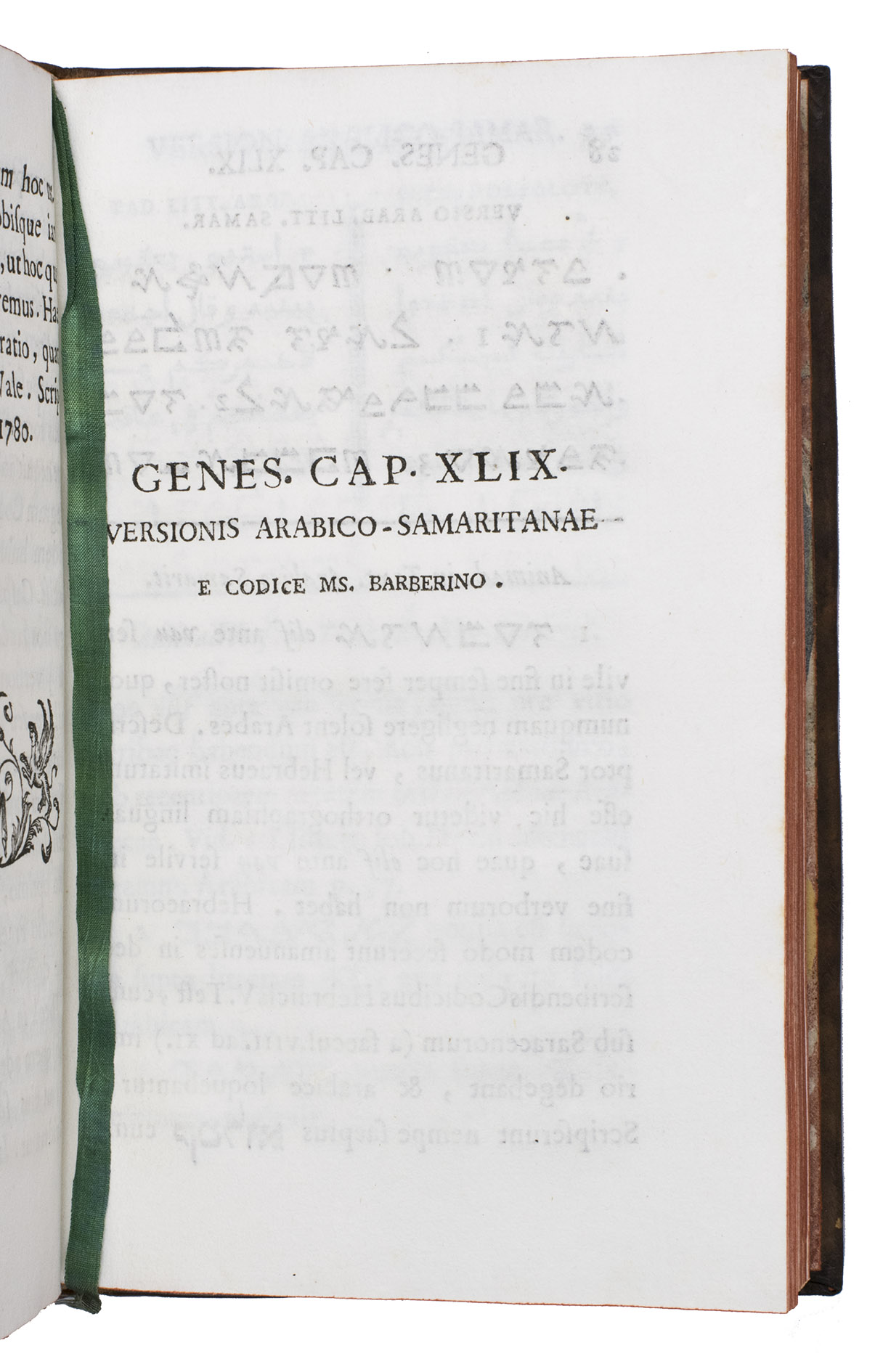HWIID, Andreas Christian.
Specimen ineditae versionis Arabico-Samaritanae Pentateuchi e codice manuscripto Bibliothecae Barberinae.
Rome, Praesidum Facultate, 1780. 8vo. With a woodcut vignette on the title-page, two decorated woodcut initials and a woodcut tailpiece. Latin, Samaritan and Arabic type throughout, and occasionally Coptic and Greek type. Contemporary gold- and blind-tooled mottled calf, with a red morrocco title label lettered in gold on the spine. 63, [1], XXXVIII, [1], [1 blank] pp.
€ 6,500
One of the earliest critical editions of the Samaritan Pentateuch, printed in Samaritan Arabic.
European scholars first became interested in the Samaritan Pentateuch in 1616, when traveller Pietro della Valle (1586-1652) purchased a manuscript of it in Damascus. This manuscript is now known as Codex B. Until the second half of the 20th century, most critical editions of the Samaritan Pentateuch were based on Codex B. The present work by Andreas Christian Hviid (1749-1788), however, is based on a Samaritan triglotta-manuscript from the 15th century currently in the Vatican Library, and is therefore a rare exception. Very few editions of this manuscript have ever been made.
The present work contains all verses of Genesis 49 in Samaritan and Arabic, based on an Arabic translation of the Samaritan triglotta-manuscript. This is combined with the Arabic version from the London polyglot Bible (1657) by bishop Brian Walton (1600-1661).
With an owner's inscription on the title-page, a small paper label pasted on the spine with the catalogue number from an estate library and the same number written in blue pencil on the verso of the first flyleaf. Two small wormholes on the front board, a small damaged spot on the spine, and mild discolouration of the upper part of the back board. With a few small, black stains on the rear endpapers, all leaves very slightly warped from past humidity. Otherwise in very good condition. BM, General catalogue, vol. 3, p. 41-525; Darlow & Moule 1755.
Related Subjects:
